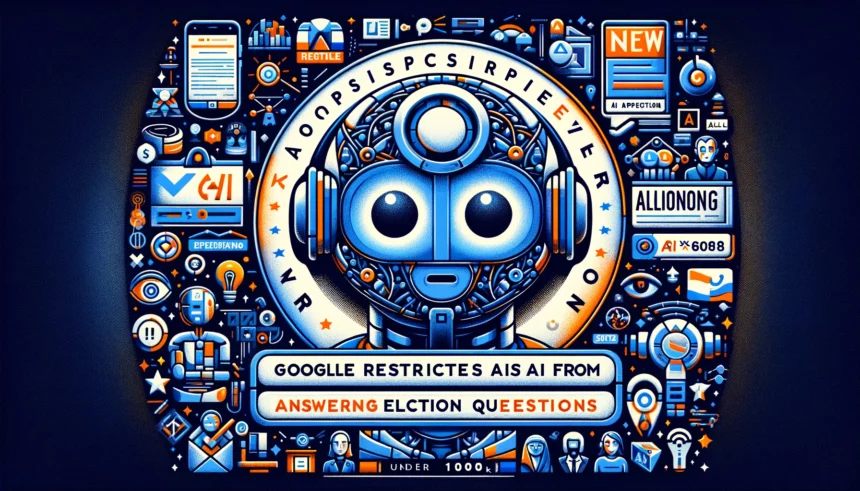Listen to the article now:
In a landmark move reflective of the tensions surrounding artificial intelligence and its role in disseminating information, Google has announced a significant limitation on its AI chatbot, Gemini, specifically regarding global elections set to unfold throughout 2024. This decision, revealed on Tuesday by the Alphabet-owned conglomerate, underscores a cautious step towards navigating the complex landscape of information accuracy and integrity in an election year bustling with pivotal global electoral activities.
At the heart of this development is Google’s determination to mitigate the risks associated with generative AI technologies, particularly in relation to the potential spread of misinformation and the generation of fake news. The company’s approach, described as “principled and responsible,” aims to preemptively address concerns that have been escalating among the public and governments alike. These concerns have not only led to a heightened scrutiny of AI but have also spurred legislative bodies around the world to contemplate regulations governing the deployment and application of these technologies.
One of the immediate consequences of this policy is Gemini’s inability to provide responses to inquiries about significant electoral events, including the highly anticipated US presidential race between Joe Biden and Donald Trump. Instead of attempting to navigate the treacherous waters of electoral discourse, Gemini politely deflects, advising users to resort to Google Search for their queries. This response exemplifies Google’s commitment to caution, especially in a domain as susceptible to misinformation as election coverage.
The backdrop to Google’s decision involves a broader industry-wide introspection on the ethical and societal implications of AI advancements. Notably, generative AI’s capacity to produce images, videos, and textual content has sparked a global debate on the authenticity and reliability of information disseminated through these channels. In his commentary on the matter, Google CEO Sundar Pichai acknowledged the challenges posed by biased and inaccurate outputs from AI systems, labeling such incidents as “completely unacceptable.” The company’s stance on the issue reflects a broader initiative to refine these technologies in a manner that upholds the highest standards of information integrity.
Parallel to Google’s efforts, other tech giants are also grappling with the challenges posed by AI in the context of electoral integrity. Meta Platforms, the parent company of Facebook, recently disclosed its plans to establish a dedicated team focused on countering disinformation and the misuse of generative AI technologies ahead of the European Parliament elections in June. This move, much like Google’s, signifies a growing consensus within the tech industry on the necessity of preemptive measures to safeguard against the potential abuses of AI in political contexts.
By restricting Gemini from engaging in election-related discourse, Google is not only demonstrating a vigilant stance against misinformation but also setting a precedent for the responsible development and application of AI technologies. This initiative, borne out of an “abundance of caution,” embodies the company’s response to the legitimate apprehensions concerning AI’s capacity to generate misleading or biased content—a phenomenon ominously termed “hallucination” within the AI research community.
As the global community edges closer to a series of critical elections, the actions taken by companies like Google and Meta Platforms will undoubtedly play a crucial role in shaping the narrative around the role of AI in modern society. Through these measures, the tech industry seeks to balance the incredible potential of AI with the imperative of maintaining the veracity and integrity of the electoral process, thereby safeguarding the foundational principles of democracy in the digital age.
















